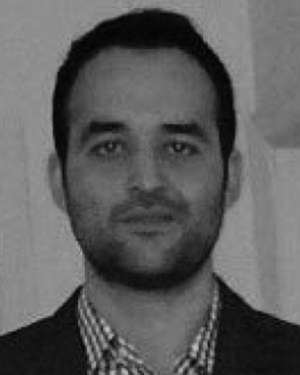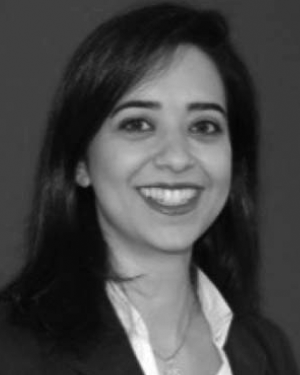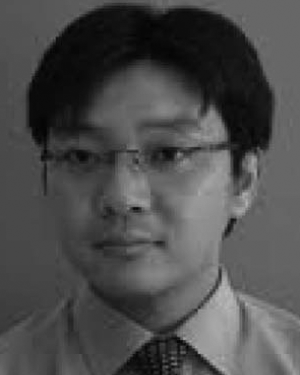Abstract:
This research directly couples investment decisions on distributed energy resources (DERs) with demand side management (DSM) strategies that can be adopted over time by r...Show MoreMetadata
Abstract:
This research directly couples investment decisions on distributed energy resources (DERs) with demand side management (DSM) strategies that can be adopted over time by residential communities. The formulation also takes into account factors that usually contribute to long-term market variations and short-term operational volatilities. This paper uses a high resolution adaptive model (Hi-RAM) for short-term load calculations on a premise that expected dynamical effects due to DSM strategies and their interactions cannot effectively be captured by traditional forecast models. The integration of Hi-RAM into investment formulation allows for certain What-If investment scenario analysis on the use of advanced technologies, new plug-ins, and consumer response to power price fluctuations, and more. To demonstrate the significance of coupling of DER investment decisions and DSM strategies, three scenarios are presented. The base scenario (Mode I) results can be reproduced using traditional forecast models and is included for baseline analysis and benchmarking. In Mode II, new load patterns for plug-in electric vehicles are introduced. Mode III is an extended version of Mode II, where smart devices are used within households. The comparison of investment decisions from the three modes clearly demonstrate that interaction effects of DSM strategies matter.
Published in: IEEE Transactions on Smart Grid ( Volume: 7, Issue: 4, July 2016)

Department of Civil and Environmental Engineering, Rutgers University, Piscataway, NJ, USA
Farbod Farzan received the B.S. degree in chemical engineering from the University of Tehran, Tehran, Iran, in 2008, and the M.S. degree in environmental engineering from Rutgers University, Piscataway, NJ, USA, in 2011, respectively, where he is currently pursuing the Ph.D. degree with the Department of Civil and Environmental Engineering.
He is the member of the Laboratory on Energy Sustainability and Systems Research Gr...Show More
Farbod Farzan received the B.S. degree in chemical engineering from the University of Tehran, Tehran, Iran, in 2008, and the M.S. degree in environmental engineering from Rutgers University, Piscataway, NJ, USA, in 2011, respectively, where he is currently pursuing the Ph.D. degree with the Department of Civil and Environmental Engineering.
He is the member of the Laboratory on Energy Sustainability and Systems Research Gr...View more

Det Norske Veritas-Germanischer Lloyd Energy Advisory, Chalfont, PA, USA
Farnaz Farzan (M’14) received the B.S. degree in mechanical engineering from the University of Tehran, Tehran, Iran, in 2005, and the M.S. and Ph.D. degrees in mechanical and aerospace engineering and industrial and systems engineering from Rutgers University, Piscataway, NJ, USA, in 2008 and 2013, respectively.
She is a Senior Consultant with DNV GL, Chalfont, PA, USA, where she is experienced in stochastic optimization i...Show More
Farnaz Farzan (M’14) received the B.S. degree in mechanical engineering from the University of Tehran, Tehran, Iran, in 2005, and the M.S. and Ph.D. degrees in mechanical and aerospace engineering and industrial and systems engineering from Rutgers University, Piscataway, NJ, USA, in 2008 and 2013, respectively.
She is a Senior Consultant with DNV GL, Chalfont, PA, USA, where she is experienced in stochastic optimization i...View more

Department of Industrial and Systems Engineering, Rutgers University, Piscataway, NJ, USA
Mohsen A. Jafari (M’98) received the M.S. and Ph.D. degrees from Syracuse University, Syracuse, NY, USA, in 1981 and 1985, respectively.
He is a Professor and the Chair with the Department of Industrial and Systems Engineering, Rutgers University, Piscataway, NJ, USA, and the Principal with the Rutgers Center for Advanced Infrastructure and Transportation, where he oversees the Transportation Safety Resource Center and Inf...Show More
Mohsen A. Jafari (M’98) received the M.S. and Ph.D. degrees from Syracuse University, Syracuse, NY, USA, in 1981 and 1985, respectively.
He is a Professor and the Chair with the Department of Industrial and Systems Engineering, Rutgers University, Piscataway, NJ, USA, and the Principal with the Rutgers Center for Advanced Infrastructure and Transportation, where he oversees the Transportation Safety Resource Center and Inf...View more

Department of Civil and Environmental Engineering, Rutgers University, Piscataway, NJ, USA
Jie Gong received the B.S. degree from Shanghai Jiao Tong University, Shanghai, China, and the M.S. degree from Texas Tech University, Lubbock, TX, USA, in 1999 and 2005, respectively, and the Ph.D. degree from the University of Texas at Austin, Austin, TX, in 2009, all in civil engineering.
He was an Assistant Professor with the Department of Civil and Environmental Engineering, Rutgers University, Piscataway, NJ, USA. He...Show More
Jie Gong received the B.S. degree from Shanghai Jiao Tong University, Shanghai, China, and the M.S. degree from Texas Tech University, Lubbock, TX, USA, in 1999 and 2005, respectively, and the Ph.D. degree from the University of Texas at Austin, Austin, TX, in 2009, all in civil engineering.
He was an Assistant Professor with the Department of Civil and Environmental Engineering, Rutgers University, Piscataway, NJ, USA. He...View more

Department of Civil and Environmental Engineering, Rutgers University, Piscataway, NJ, USA
Farbod Farzan received the B.S. degree in chemical engineering from the University of Tehran, Tehran, Iran, in 2008, and the M.S. degree in environmental engineering from Rutgers University, Piscataway, NJ, USA, in 2011, respectively, where he is currently pursuing the Ph.D. degree with the Department of Civil and Environmental Engineering.
He is the member of the Laboratory on Energy Sustainability and Systems Research Group, Rutgers University, with the focus on development and analysis of sustainable and smart energy solutions. His current research interests include smart-grid data analytics, building automation and energy modeling, demand side management, building performance analysis, and investment strategies for distributed energy resources.
Farbod Farzan received the B.S. degree in chemical engineering from the University of Tehran, Tehran, Iran, in 2008, and the M.S. degree in environmental engineering from Rutgers University, Piscataway, NJ, USA, in 2011, respectively, where he is currently pursuing the Ph.D. degree with the Department of Civil and Environmental Engineering.
He is the member of the Laboratory on Energy Sustainability and Systems Research Group, Rutgers University, with the focus on development and analysis of sustainable and smart energy solutions. His current research interests include smart-grid data analytics, building automation and energy modeling, demand side management, building performance analysis, and investment strategies for distributed energy resources.View more

Det Norske Veritas-Germanischer Lloyd Energy Advisory, Chalfont, PA, USA
Farnaz Farzan (M’14) received the B.S. degree in mechanical engineering from the University of Tehran, Tehran, Iran, in 2005, and the M.S. and Ph.D. degrees in mechanical and aerospace engineering and industrial and systems engineering from Rutgers University, Piscataway, NJ, USA, in 2008 and 2013, respectively.
She is a Senior Consultant with DNV GL, Chalfont, PA, USA, where she is experienced in stochastic optimization in investment and operation of distributed energy resources, and power-market simulation. Her current research interests include system-level impacts and benefits of storage on power system, the behavior of dispatchable demand response and dynamic price response on wholesale markets, and the impact of visibility and control of distributed energy resources on power systems.
Farnaz Farzan (M’14) received the B.S. degree in mechanical engineering from the University of Tehran, Tehran, Iran, in 2005, and the M.S. and Ph.D. degrees in mechanical and aerospace engineering and industrial and systems engineering from Rutgers University, Piscataway, NJ, USA, in 2008 and 2013, respectively.
She is a Senior Consultant with DNV GL, Chalfont, PA, USA, where she is experienced in stochastic optimization in investment and operation of distributed energy resources, and power-market simulation. Her current research interests include system-level impacts and benefits of storage on power system, the behavior of dispatchable demand response and dynamic price response on wholesale markets, and the impact of visibility and control of distributed energy resources on power systems.View more

Department of Industrial and Systems Engineering, Rutgers University, Piscataway, NJ, USA
Mohsen A. Jafari (M’98) received the M.S. and Ph.D. degrees from Syracuse University, Syracuse, NY, USA, in 1981 and 1985, respectively.
He is a Professor and the Chair with the Department of Industrial and Systems Engineering, Rutgers University, Piscataway, NJ, USA, and the Principal with the Rutgers Center for Advanced Infrastructure and Transportation, where he oversees the Transportation Safety Resource Center and Information Management Group. He recently started the Laboratory for Sustainable Systems, Rutgers University. He was a Consultant to several Fortune 500 companies, and national and international government agencies. He was a Principal/Co-Principal to over $18 million of research and development funding from the U.S., international government agencies, and industry. His current research interests include control and optimization of large complex systems in transportation and energy applications. He has authored more than 70 technical articles, more than 60 conference papers, and more than 100 invited and contributed presentations, and holds three patents. He actively collaborates with universities and national laboratories in U.S. and abroad.
Dr. Jafari was a recipient of the IEEE Excellence Award in Service and Research, the SAP Curriculum Award, and received the Transportation Safety Award twice.
Mohsen A. Jafari (M’98) received the M.S. and Ph.D. degrees from Syracuse University, Syracuse, NY, USA, in 1981 and 1985, respectively.
He is a Professor and the Chair with the Department of Industrial and Systems Engineering, Rutgers University, Piscataway, NJ, USA, and the Principal with the Rutgers Center for Advanced Infrastructure and Transportation, where he oversees the Transportation Safety Resource Center and Information Management Group. He recently started the Laboratory for Sustainable Systems, Rutgers University. He was a Consultant to several Fortune 500 companies, and national and international government agencies. He was a Principal/Co-Principal to over $18 million of research and development funding from the U.S., international government agencies, and industry. His current research interests include control and optimization of large complex systems in transportation and energy applications. He has authored more than 70 technical articles, more than 60 conference papers, and more than 100 invited and contributed presentations, and holds three patents. He actively collaborates with universities and national laboratories in U.S. and abroad.
Dr. Jafari was a recipient of the IEEE Excellence Award in Service and Research, the SAP Curriculum Award, and received the Transportation Safety Award twice.View more

Department of Civil and Environmental Engineering, Rutgers University, Piscataway, NJ, USA
Jie Gong received the B.S. degree from Shanghai Jiao Tong University, Shanghai, China, and the M.S. degree from Texas Tech University, Lubbock, TX, USA, in 1999 and 2005, respectively, and the Ph.D. degree from the University of Texas at Austin, Austin, TX, in 2009, all in civil engineering.
He was an Assistant Professor with the Department of Civil and Environmental Engineering, Rutgers University, Piscataway, NJ, USA. He was a Principal/Co-Principal Investigator for research projects funded by the National Science Foundation, the U.S. Department of Housing and Urban Development, the U.S. Department of Transportation, the New Jersey Department of Transportation, the New Jersey Board of Public Utility, and the Illinois Department of Transportation. His research was supported by industry organizations and companies such as Bentley Systems, Exton, PA, USA, and the St. Louis Masonry Institute, St. Louis, MO, USA. His current research interests include community resilience and sustainability with a focus on sensing, building data modeling, and analytics for high-performance building systems.
Jie Gong received the B.S. degree from Shanghai Jiao Tong University, Shanghai, China, and the M.S. degree from Texas Tech University, Lubbock, TX, USA, in 1999 and 2005, respectively, and the Ph.D. degree from the University of Texas at Austin, Austin, TX, in 2009, all in civil engineering.
He was an Assistant Professor with the Department of Civil and Environmental Engineering, Rutgers University, Piscataway, NJ, USA. He was a Principal/Co-Principal Investigator for research projects funded by the National Science Foundation, the U.S. Department of Housing and Urban Development, the U.S. Department of Transportation, the New Jersey Department of Transportation, the New Jersey Board of Public Utility, and the Illinois Department of Transportation. His research was supported by industry organizations and companies such as Bentley Systems, Exton, PA, USA, and the St. Louis Masonry Institute, St. Louis, MO, USA. His current research interests include community resilience and sustainability with a focus on sensing, building data modeling, and analytics for high-performance building systems.View more


